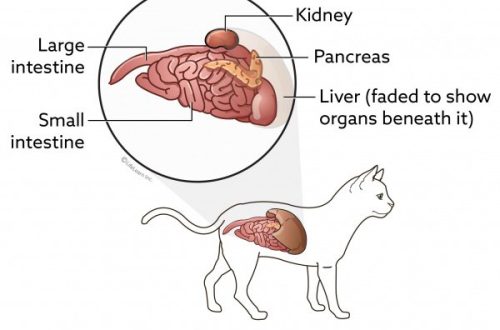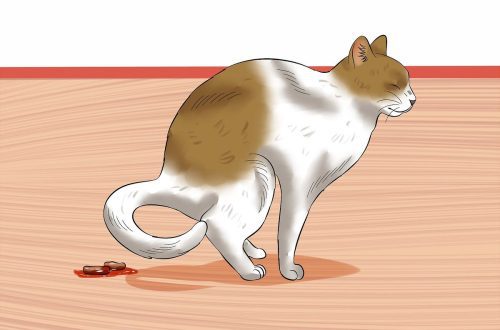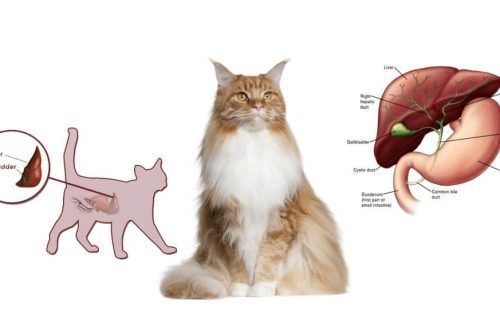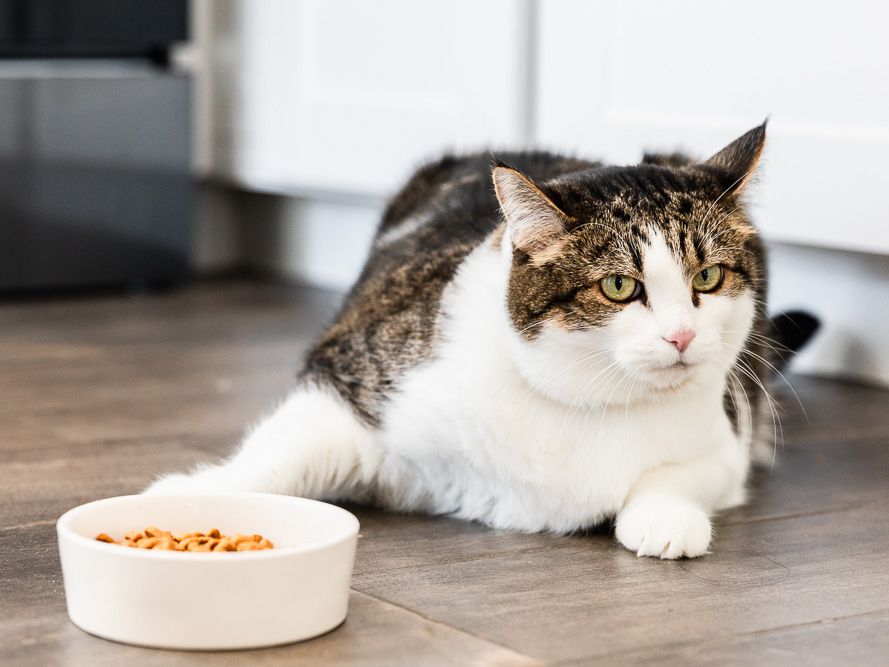
The cat does not eat well: why and what to do?
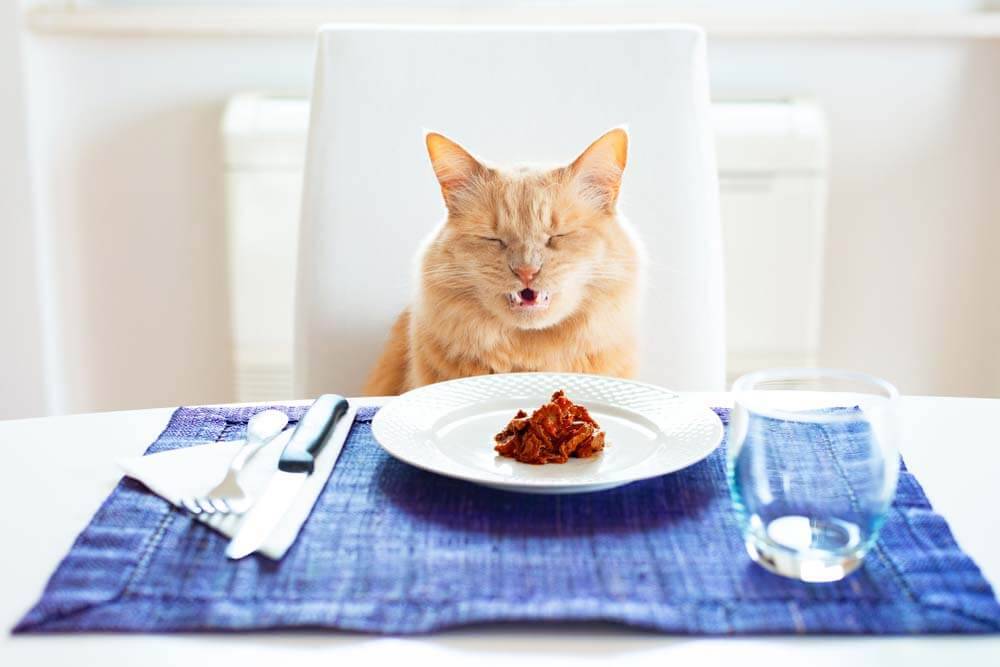
Contents
Why a cat eats little – 16 reasons
There are many reasons for loss of appetite. And since the cat itself cannot tell us what is bothering her, it is important to always assess the condition of the animal in the complex. Next, we will look at the main reasons why your cat or cat is not eating well.
Non-dangerous reasons
Inappropriate food
One of the reasons why the cat began to eat poorly may be the food itself. The owner may like him for his qualities, but the cat himself will not necessarily like him. Therefore, if you decide to change the food, do it gradually, mixing the new one into the old one, gradually changing their proportions. Usually, if the food, according to the cat, is not tasty, he will meow at a full bowl, beg for food, and sometimes steal food from the table.
Change of teeth
When changing teeth, a kitten can develop temporary gingivitis – inflammation of the gums. Often this period is very short and many owners do not even notice it. However, some kittens may be more sensitive and experience some soreness when eating the food. Therefore, when changing teeth, the baby may eat less or give preference to wet food.
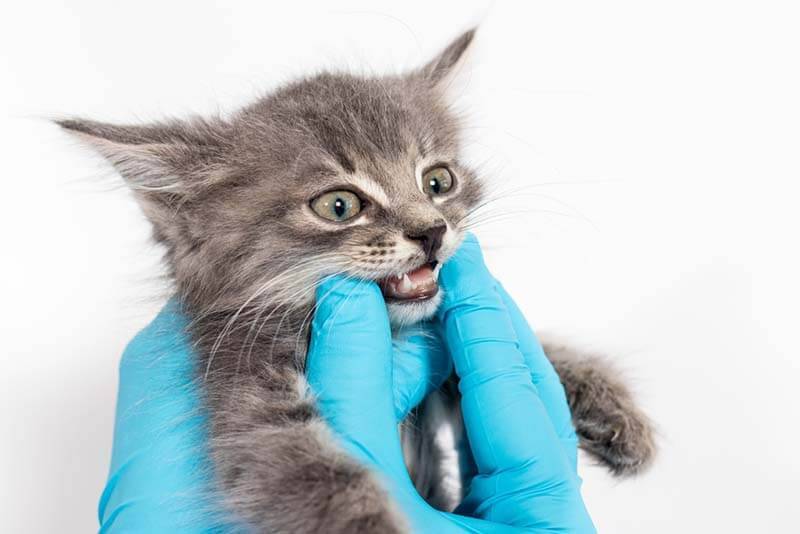
Stress
Moving, a new pet, repairs, the appearance of a child in the family – all these are stressful factors for a cat. The problem is that under stress it can be difficult to understand the true state of the animal, because sometimes a cat not only eats poorly, but also hides in secluded places, can be depressed, and sometimes can change its behavior and become aggressive.
Pregnancy
In the early stages of pregnancy at the time of hormonal changes and just before childbirth, especially if the pregnancy is multiple, the cat may eat a little less, and this is normal. The main thing is to make sure that there are no other negative manifestations in the state of the expectant mother.
Wool in the gastrointestinal tract
The cat takes care of itself daily with the help of the tongue and swallows a fairly large amount of wool. These hairballs in the gastrointestinal tract can be another reason why a cat may have a poor appetite.
vermin
Often, intestinal worms do not pose a serious health hazard to adult cats, so they can be attributed to relatively safe causes. But they lead to nausea. In this case, the cat may not only have a poor appetite, but also periodic vomiting and diarrhea.
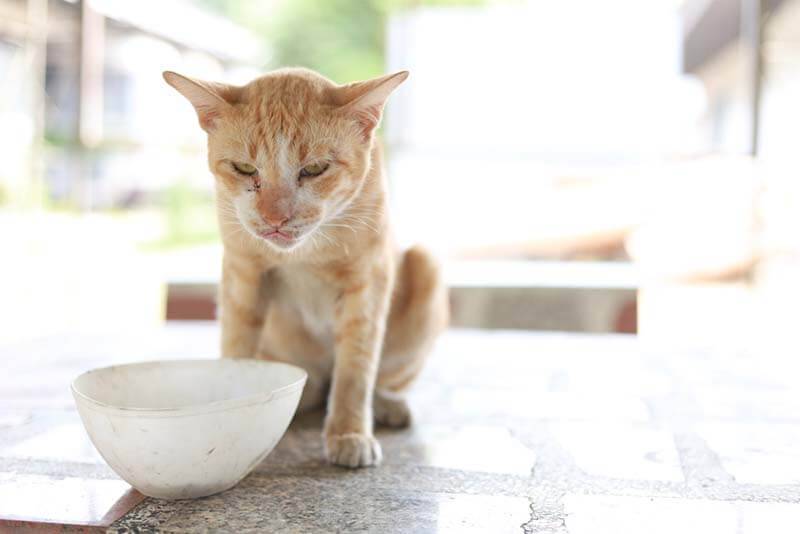
Toothstone
Dental deposits cause inflammation of the gums, and in advanced cases, loss of teeth. The owner may note: bad breath from the pet, excessive salivation, chewing on one side. Tartar does not pose a direct threat to the life of the animal, but can cause serious oral diseases.
Dangerous reasons
Foreign body
Cats love to play, including with objects that are not intended for this at all: a thread with a needle, a fishing line with a fishing hook, a paper clip. If accidentally swallowed, they can get stuck in the mouth, esophagus, surrounding soft tissues. Symptoms such as drooling, inability to open and close the mouth normally, soreness in the head and neck, and urges similar to vomiting or coughing can be noted.
Infection
Even a domestic cat that does not go outside can get sick with an infectious disease. The owner is able to bring resistant pathogens literally on himself. In addition to reducing appetite, infections are accompanied by fever, vomiting, diarrhea, sneezing, coughing, mouth ulcers, and more.
Pain
With any severe pain, the cat does not eat well. In addition, she can take a characteristic pose – a hunched, pinched, “ruffled” position, with her limbs tucked in and tail, head down. The cause of any pain syndrome is important to diagnose.
Oncological diseases
In some cases, the fact that the cat is losing weight and eating poorly will be the first “bell” of a dangerous disease. Other symptoms are not uncommon: vomiting, shortness of breath, cough, the appearance of “bumps” on the body, limbs.
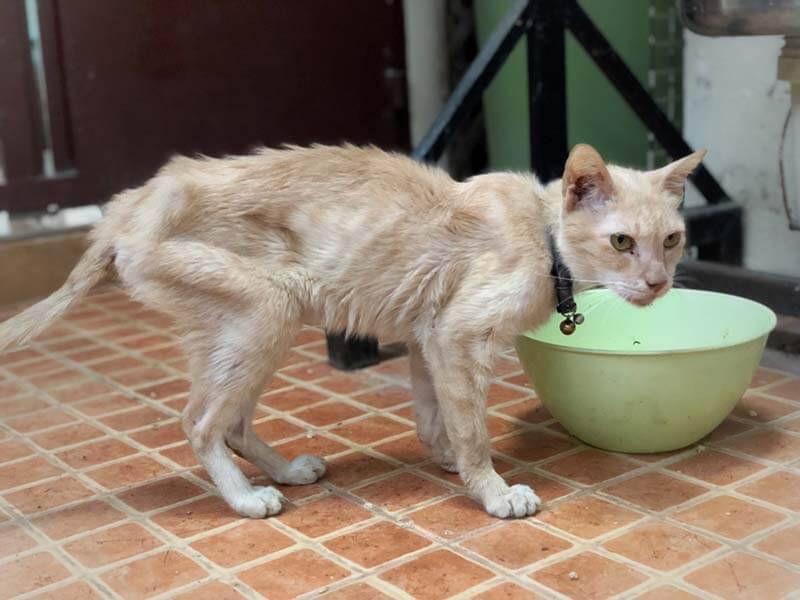
Anemia
Anemia is a decrease in the level of hemoglobin and the number of red blood cells in the blood. Severely anemic cats may eat less and sometimes have a perverted appetite – eating soil from flower pots, licking walls. Also noted are the pale color of the mucous membranes, depression, sometimes shortness of breath and unsteady gait.
Fever
An increase in temperature accompanies inflammatory processes. The cause may be infectious diseases, abscesses, pneumonia, in females – inflammation of the uterus. In addition to a decrease in appetite, lethargy is noted. Ears, nose and paw pads become hot.
Chronic kidney disease
Unfortunately, the actual disease in cats older than 8-10 years. Also, frequent symptoms will be: an increase in the volume of urination, increased thirst, the animal will noticeably lose weight.
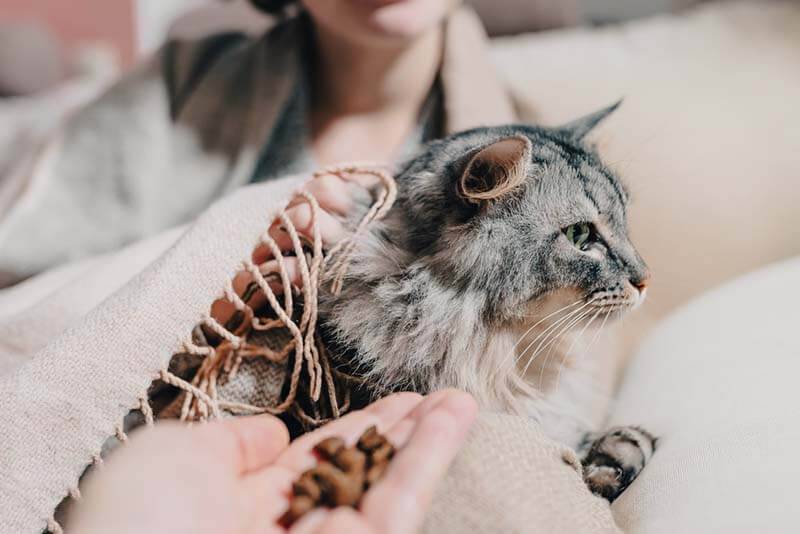
Other chronic diseases
In some cases, the disease does not manifest itself acutely, but develops over several months. Then it does not immediately become noticeable that the cat does not eat well, because the decrease in appetite can occur gradually. Frequent symptoms will be: vomiting, diarrhea, weight loss, yellowness of the mucous membranes and skin.
Cardiovascular diseases
Possible even in cats of young and middle age, as they are heritable. For example, hypertrophic cardiomyopathy in British and Scottish cats, Maine Coons, Ragdolls. The owner may note shortness of breath, depression, cyanosis of the mucous membranes.
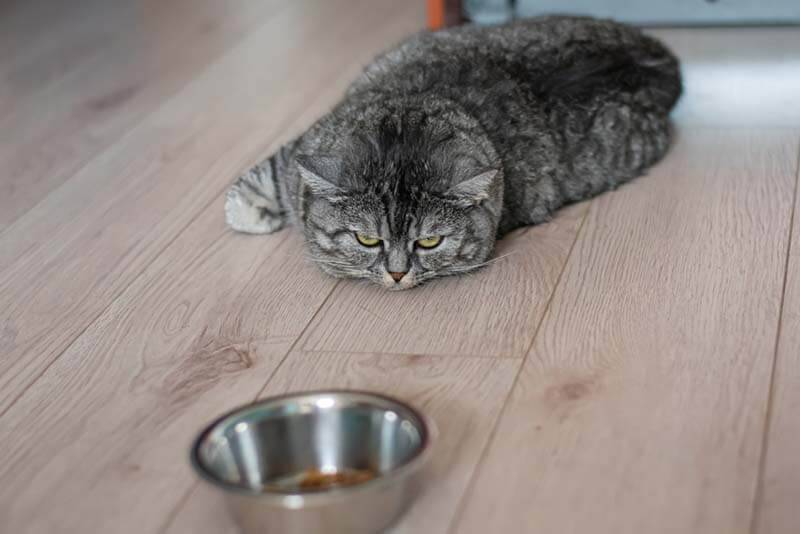
Diagnostics
To diagnose the causes of poor appetite, the help of a veterinarian is required. The specialist will examine the animal, collect an anamnesis (medical history). Sometimes already at this stage, you can identify the problem: fever, the presence of tartar, heart murmurs, pain.
In most cases, an abdominal ultrasound will be required to make a diagnosis. It will help to identify diseases of the kidneys, liver, pancreas, gastrointestinal tract, some tumor diseases, inflammation of the uterus in cats.
A general clinical blood test will show signs of inflammation, anemia.
A biochemical blood test will allow you to evaluate the function of internal organs, the level of electrolytes, glucose, calcium, phosphorus.
X-ray examination is necessary for the diagnosis of foreign bodies, orthopedic and dental problems, respiratory diseases.
When infectious diseases are suspected, special studies are often required to identify the pathogen.
Echocardiography (ultrasound of the heart) is performed to confirm cardiac disease.
In oncological pathologies, computed tomography may be needed.
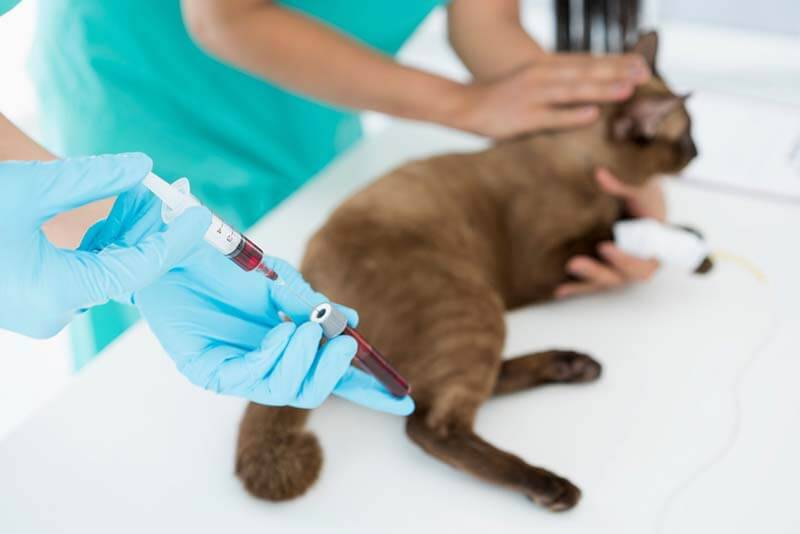
What to do if the cat is bad or does not eat at all?
Some causes of decreased appetite can be suspected even before the pet is examined by a veterinarian. For example, if a cat refuses a new food and willingly eats the old one, the reason is most likely only in the food.
If you suspect pain in the oral cavity, you can offer your pet wet food.
If the cat has hair vomiting, introduce a hair removal paste into the diet.
It is worth carrying out treatment for helminths if it is carried out irregularly or has been for a long time.
In stressful situations, it is better to place a bowl with your favorite type of food in the place that the animal has chosen as its shelter.
It is important to observe the pet and conduct an independent examination. Pay attention to the following points:
What does the oral cavity and teeth look like, are there any signs of inflammation, ulcers, discoloration of tooth enamel;
How does the pet drink and urinate, are there any problems with the stool, vomiting;
Has the cat become less active, are there signs of fever;
How the animal breathes, especially in sleep and in a calm state;
Did the pet begin to lose weight;
Are there any signs of pain during delicate palpation of the body, limbs.
In most cases, treatment will not be aimed at stimulating appetite, but at eliminating the cause of its decrease.
Dental problems are solved by hygienic sanitation of the oral cavity, removal of diseased teeth.
Foreign bodies are removed surgically or endoscopically.
In infectious diseases, chronic pathologies of the kidneys, liver, intestines, pancreas, complex therapy is carried out, which includes the removal of nausea, pain, replenishment of fluid deficiency by infusion of special solutions, the appointment of a therapeutic diet, vitamin preparations.
Oncological diseases can be treated both surgically and in a complex manner using chemotherapy and other methods.
In cardiac pathologies, therapy depends on the specific diagnosis.
Severe anemia may require a blood transfusion.
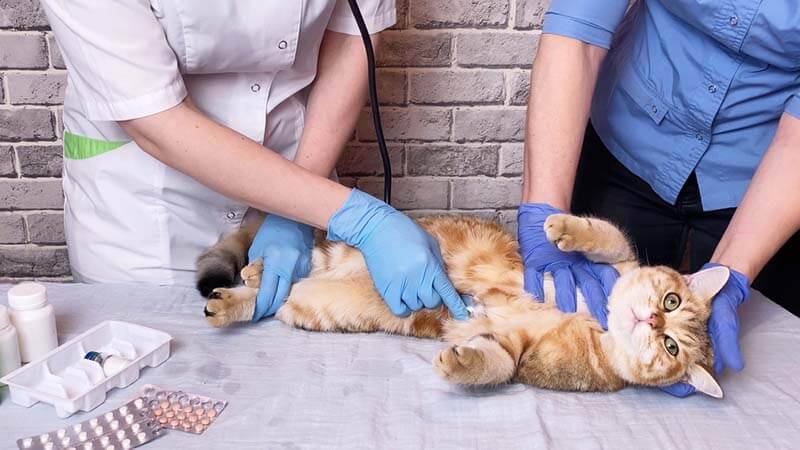
Prevention
Based on the fact that there are many reasons for a decrease in appetite in cats, it is important to follow a number of important rules for their prevention:
Provide your pet with a complete, tasty diet for him
Remove dangerous objects from cat access: needles and threads, paper clips, toothpicks
Do not expose your cat to a stressful situation unnecessarily, and if it is impossible to avoid it, take care to reduce the stress level, including using sedatives
Vaccinate a cat in a timely manner, even if she does not go outside
Treat regularly for worms
Take care of your pet’s teeth with special pastes, gels, treats
Introduce hair removal paste into your diet
Animals older than 8 years should have regular scheduled examinations every 6-12 months.
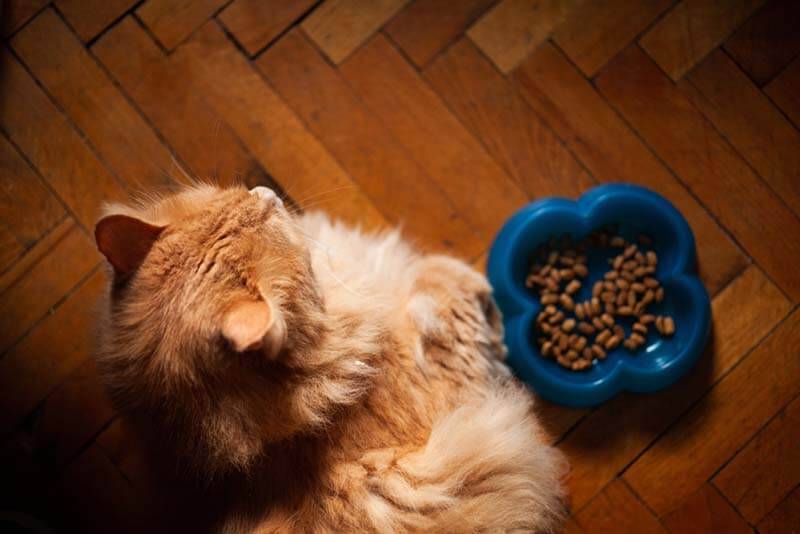
If the cat began to eat little – the main thing
There are many reasons for a decrease in appetite: stress, dental problems, parasites, infections, nausea, pain, fever, chronic diseases, heart disease, oncology.
It is important to monitor other symptoms: vomiting, diarrhea, depression, decreased fatness.
When there are no other symptoms, you can offer the animal a favorite type of food, wet food, treat for helminths, give a paste to remove wool.
If the loss of appetite is prolonged, severe, or accompanied by other symptoms, you should contact your veterinarian.
Answers to frequently asked questions
Sources:
Edited by Gary D. Norsworthy. The feline patient, fifth edition, (The cat patient, the fifth building), 2018
Chandler E. A., Gaskell R. M., Gaskell K. J. Diseases of cats, 2011



